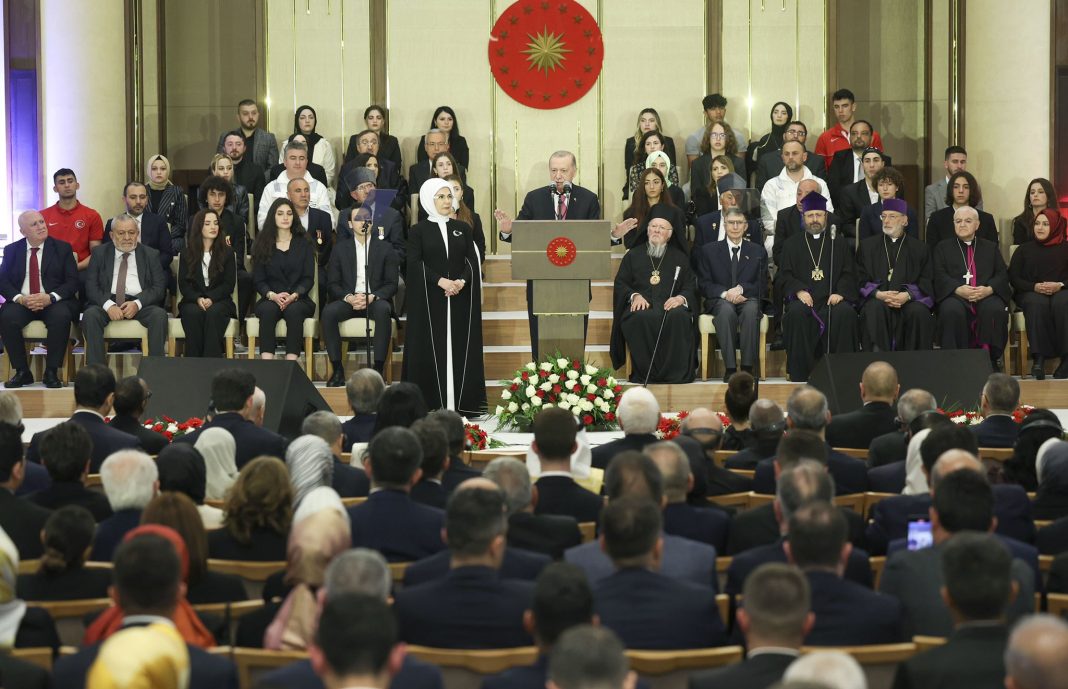The Turkish president, Recep Tayyip Erdoğan sworn in for new five-year term as Turkish president, extending his rule into a third decade.
“I, as president, swear upon my honour and integrity before the great Turkish nation and history to safeguard the existence and independence of the state … to abide by the constitution, the rule of law, democracy, the principles and reforms of Ataturk, and the principles of the secular republic,” Erdoğan said in a ceremony at the parliament in Ankara, which was broadcast live on television.
Turkey’s longest serving leader, Erdoğan won 52.2% support in a 28 May runoff vote. His election victory upended the predictions of most opinion polls and came despite a cost of living crisis that was seen to have dampened his prospects.
His new mandate will allow Erdoğan to pursue what have been increasingly authoritarian policies that have polarised the country, a Nato member, and strengthened its position as a regional military power.
The inauguration will be followed by a ceremony at the presidential palace attended by high-level officials from 78 countries and international organisations, including the Nato secretary general, Jens Stoltenberg, the Venezuelan president, Nicolás Maduro, the Hungarian prime minister, Viktor Orbán and the Armenian prime minister, Nikol Pashinyan, according to the state-run Anadolu Agency.
Erdoğan is expected to name his ministers on Saturday evening. He was almost certain to include the former economy chief Mehmet Şimşek in his new cabinet, Reuters reported earlier this week, which would signal a potential return to more economic orthodoxy including eventual interest rate hikes.
Şimşek was highly regarded by investors when he served as finance minister and deputy prime minister between 2009 and 2018. A key role for him now could mark a departure from years of policy that was underpinned by low interest rates despite high inflation, and heavy state control of markets.
Erdoğan, 69, became prime minister in 2003 after his AK party won an election in late 2002 following the worst economic crisis since the 1970s. In 2014 he became the country’s first popularly elected president and was elected again in 2018 after securing new executive powers for the presidency in a 2017 referendum.
The 14 May election and subsequent runoff were pivotal given the opposition had been confident of ousting Erdoğan and reversing many of his policies, including proposing sharp interest rate hikes to counter inflation, running at 44% in April. In his victory speech, Erdoğan said inflation, which hit a 24-year peak of 85% last year before easing, was Turkey’s most urgent issue.
Analysts have warned that if the current policies continue, the economy is headed for turmoil given depleted foreign reserves, an expanding state-backed protected deposits scheme and unanchored inflation expectations. The lira has undergone a series of crashes in recent years and hit new all-time lows in the days after the vote.



